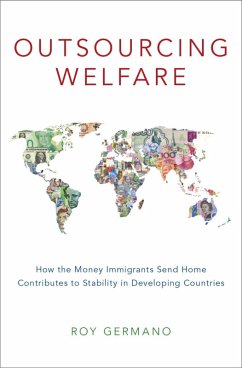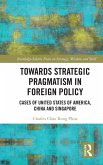Rising food prices, climate change, and the ravages of global capitalism have made the poor increasingly vulnerable to economic crises. At the same time, the governments of many developing countries have adopted austerity measures that leave their citizens without a safety net in times of need. This combination poses a potent threat to social and political stability throughout the developing world. How do the poor cope with economic crises when their governments fail to guarantee social welfare? How do societies keep from fracturing under the weight of economic grievances and civil unrest?
Outsourcing Welfare argues that the answers to these questions lie with remittances, the hundreds of billions of dollars that international migrants send to their home countries. Remittances are a leading source of income in dozens of developing economies and a critical lifeline that millions of families use to pay for food, healthcare, clothing, and other basics. In the absence of adequate government social protections, remittances insulate poor families from the full pain of economic crises, and in doing so, reduce the severity of grievances that fuel populist anger, civil unrest, and political instability. Through stories from his fieldwork in Mexico and Central America and analyses of data from Africa, Latin America, the Caribbean, and the Middle East, Roy Germano shows how remittances buffer economic shocks, contribute to economic optimism, and dampen the threat of popular discontent during economic crises. Germano argues that remittances perform a social, economic, and political function that is strikingly similar to social spending, and that counting on people to migrate and send money home has become a de facto social welfare policy in many developing countries.
Dieser Download kann aus rechtlichen Gründen nur mit Rechnungsadresse in A, B, BG, CY, CZ, D, DK, EW, E, FIN, F, GR, HR, H, IRL, I, LT, L, LR, M, NL, PL, P, R, S, SLO, SK ausgeliefert werden.









